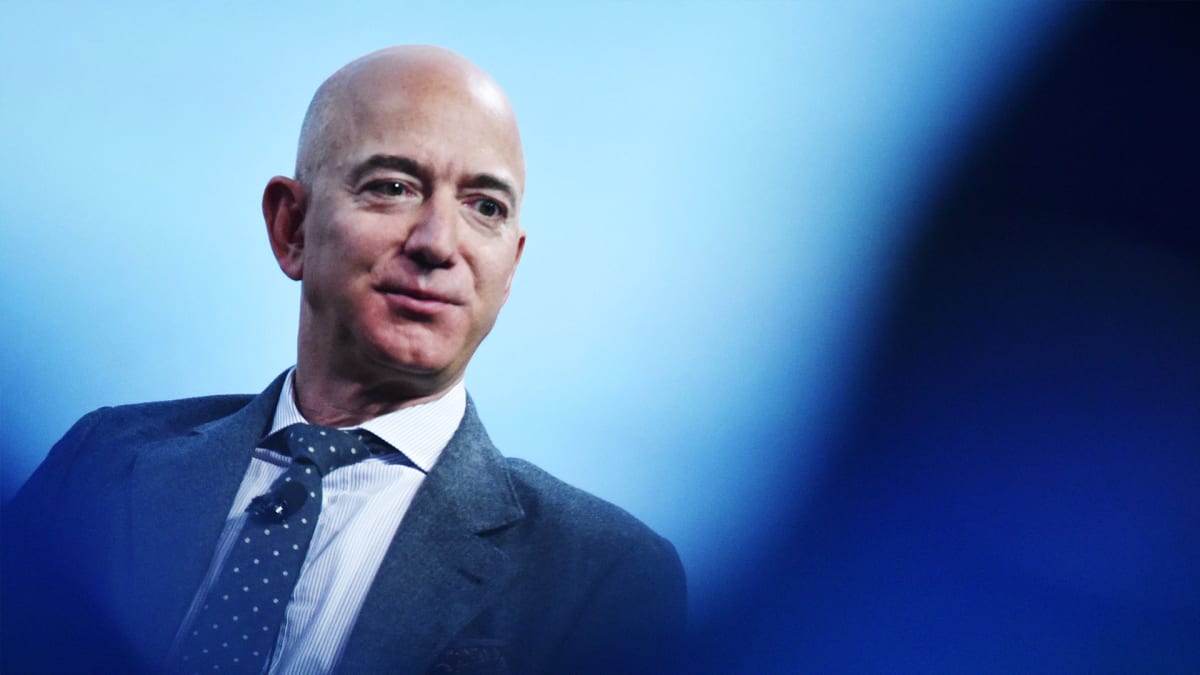
The two billionaire executives both suffered a big setback last year.
Elon Musk, 51, and Jeff Bezos, 59, have been overtaken by French tycoon Bernard Arnault in the ranking for the richest person on the planet.
The CEO and largest shareholder of the luxury empire LVMH has become the richest person in the world, relegating the two tech moguls to second (Musk) and third (Bezos) places.
While Musk, the CEO of Tesla (TSLA), briefly took back the throne this year, Arnault remains well positioned for what now appears to be his rightful place. The French businessman has a net wealth valued at $202 billion as of May 20, according to the Bloomberg Billionaires Index. Musk's fortune is valued at $176 billion, while Bezos is worth $140 billion.
But for Musk and Bezos the urgency is elsewhere. The two tech billionaires are engaged in a rivalry over the conquest of space. Musk was the first to take the lead with his company SpaceX, which caught the world's attention on April 20, with the very first orbital flight of Starship, the rocket with which Musk wants to conquer the planet Mars and bring back the humans on the moon. The powerful vehicle exploded in mid-flight.
Bezos' Blue Origin Wins Big Contract
Last year, Musk did not hesitate to challenge Bezos, urging him to refocus to make their duel more exciting.
"Does seem like he’s spending a lot of time in the hot tub these days," the Techno King said of his rival, referring, at the time, to press articles in the tabloids chronicling the holidays of Bezos and his girlfriend Lauren Sanchez in St. Barts. "If he wants to get to orbit, less partying and more work would be advisable."
Almost a year to the day, Bezos took up the challenge.
Two years after awarding a first contract to SpaceX, the National Aeronautics and Space Administration (NASA) announced on May 19 that it had chosen Blue Origin, Bezos’ company, to build a second moon landing system, intended to bring astronauts to the surface of the Moon. The lander has been selected for the Artemis V mission, which is due to take place in 2029. It will first have to demonstrate its safety by landing on the Moon without a crew.
The amount of the contract, which is known as the Sustaining Lunar Development, or SLD, is $3.4 billion, but John Couluris, vice president of lunar transport at Blue Origin, said at a press conference that the company would itself contribute "well north” of the contract's value as well.
"We're making an additional investment in the infrastructure that will pave the way to land the first humans on Mars," NASA Administrator Bill Nelson said. "Our shared ambitions now are less lofty than when President [John F.] Kennedy dared a generation of dreamers to journey to the moon."
"Honored to be on this journey with @NASA to land astronauts on the Moon — this time to stay," Bezos, who is still executive chairman of e-commerce giant Amazon, reacted on Twitter, which is owned by his rival. "Together, we’ll be solving the boil-off problem and making LOX-LH2 a storable propellant combination, pushing forward the state of the art for all deep space missions."
Legal Battle
For this contract, Blue Origin, which has Lockheed Martin, Draper, Boeing, Astrobotic, and Honeybee Robotics as partners, topped a bid from Leidos.
The company and its partners "will develop and fly both a lunar lander that can make a precision landing anywhere on the Moon’s surface and a cislunar transporter," Blue Origin said in a statement.
The Artemis program is the American return to the Moon program, consisting of missions of increasing difficulty. It started with the Artemis I mission, which sent an unmanned craft around the moon last fall. The Artemis II mission will send four astronauts around the Moon in the fall of 2024, without landing there. The identity of the lucky winners, three Americans and a Canadian, was recently revealed.
Artemis III will be the first mission to land astronauts on the lunar surface since 1972. It is officially scheduled for the end of 2025, a schedule which is widely believed that will not be met. The next two missions, Artemis IV (in 2028) and Artemis V (in 2029), will also both land on the Moon, but will first pass through a new space station in lunar orbit, Gateway – which does not yet exist.
In 2021, NASA had chosen SpaceX to build the Artemis III lander. The contract, which is known as the Human Landing System, or HLS, amounted to $2.9 billion, while SpaceX will also contribute to the effort beyond this amount. Blue Origin, also in competition for this first contract, had filed a complaint against NASA, accusing it of having chosen a single company and not two as it had suggested.
"You cannot sue your way to the moon, no matter how good your lawyers are," Musk said during the legal battle between Blue Origin and NASA.
The lawsuit was dismissed by the U.S. Court of Federal Claims.
Last year, SpaceX received an additional $1.15 billion from NASA under the HLS contract. This relates to a second crewed demonstration landing. In total, the contract is now valued at more than $4 billion through 2027.







